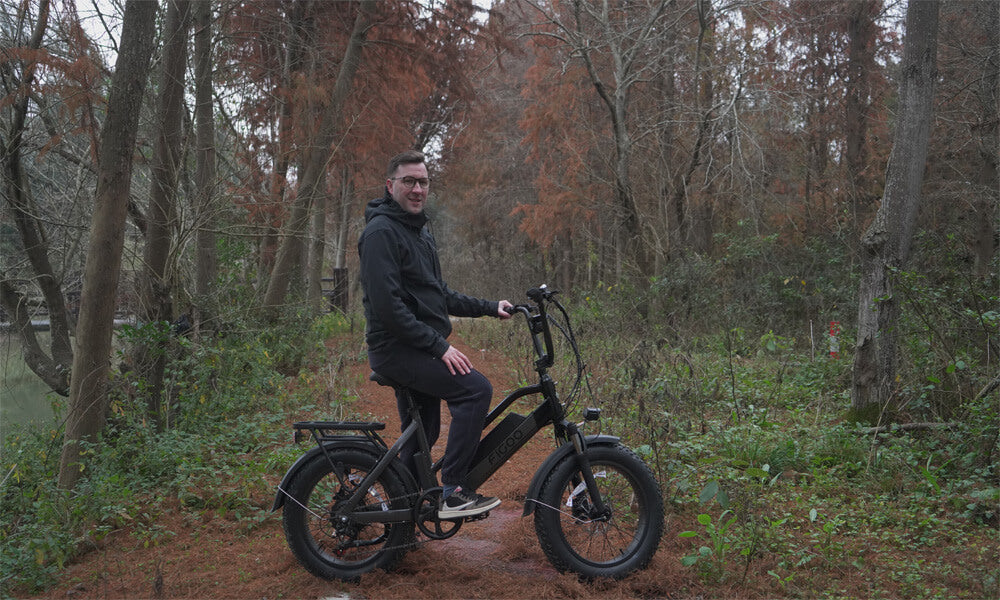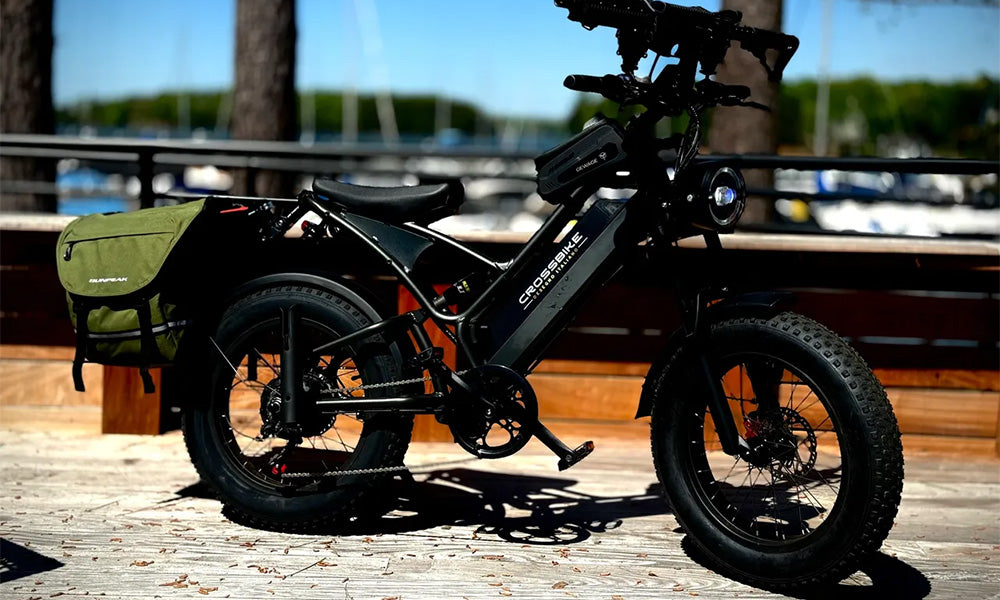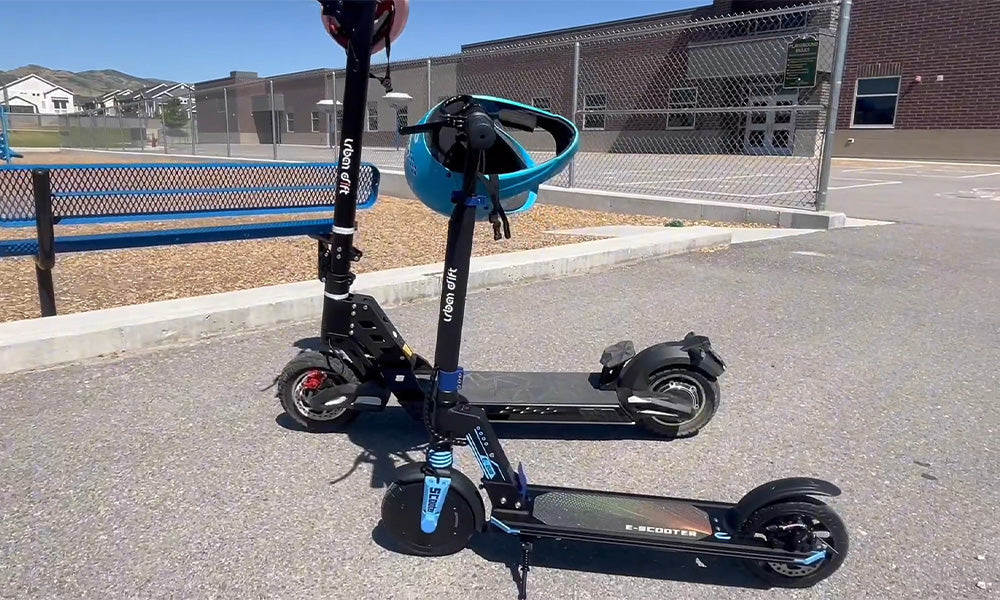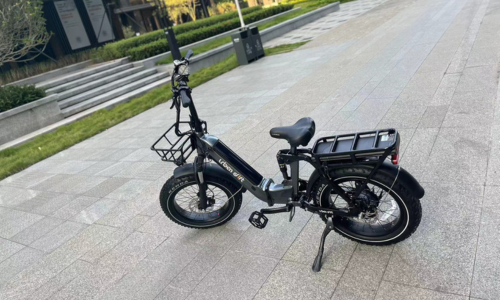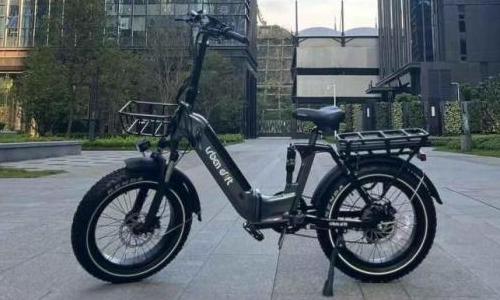WEST HARTFORD — A new statewide rebate program has advocates hopeful that a new wave of e-bike riders will soon hit Connecticut's streets.
Beginning June 28, those buying eligible e-bikes from brick and mortar retailers can apply to receive $500 or $1,500 in rebates to help offset some of the cost of an electric bike, which can be more expensive than a traditional bike. The program was created last year by lawmakers when they passed the Connecticut Clean Air Act.
Jay Stange, a West Hartford resident and the coordinator for the Transport Hartford Academy at the Center for Latino Progress in Hartford, is among those who advocated for the program.
"When you ride an e-bike, it’s like being a superhero," Stange said. "You start pedaling, and as you apply pressure to the pedals, the motor in the bike adds to your power. You turn a mild-mannered 50-something dad like me into someone who can compete in the Tour de France."
Stange expects the program, which is similar to other ones launched in states like Vermont and Colorado, to create a new generation of e-bike riders.
"It’s going to be a game changer," he said. "Everywhere else this has rolled out…those programs have been wildly successful. All these new riders would be out there advocating for better infrastructure for transportation other than cars in Connecticut and I think that’s a big net benefit for everybody, including drivers who might have less people on the roads in cars. Everybody wins."
How the rebate program works
The rebate program is being rolled out and managed by the state's Department of Energy and Environmental Protection and is being overseen by CHEAPR, the same board that has handled the state's electric vehicle rebate program.
Those interested in taking advantage of the rebate should first visit DEEP's website to apply for a rebate. When the portal goes live at 9 a.m. on June 28, everyone in Connecticut will be eligible to receive a $500 rebate. Others will be eligible to receive an additional $1,000 depending on a few factors, including if they live in an environmental justice community or distressed municipality, participate in a state or federal income qualifying program or have an income less than 300 percent of the federal poverty level.
Once someone is approved for their rebate, they then can seek out a participating store in Connecticut a rebate can be used at for purchasing one of the eligible bikes.
DEEP's commissioner, Katie Dykes, is expecting a lot of interest during the first phase of the program.
"We expect it to be a really popular program," Dykes said. "I do expect high demand for these vouchers. We are providing a certain amount of funding in this first phase and then we’ll assess where we are."
"The bottom line about e-bikes, for everybody who gets on one, it’s really fun, it’s really exciting," Stange said.
But also, he said, ditching your vehicle for any kind of bike can help the environment. He said studies have shown that 40 percent of greenhouse gas emissions in Connecticut come from vehicles.
"It’s one less tailpipe in Connecticut and that means everything," Stange said about adding new e-bike riders. "About one third of the trips that people make in Connecticut in cars are less than 10 miles. Half of those trips are less than five miles. In a lot of the towns and cities in Connecticut that geographically aren’t huge, it's possible to get to work, run errands or go to your kids soccer game with an e-bike instead of your car."
Dan Haar /Hearst CT Media
Dykes said that's another reason the equity piece, and providing additional rebates to residents who qualify for it, was important for DEEP.
"Those groups are largely folks who are living in communities who experience much higher levels of air pollution than the rest of the state because they’re often adjacent to industrial zones or transportation corridors," Dykes said. "Those are communities that have the highest rates of asthma or respiratory illness."
Kate Rozen, a sustainable transp ortation advocate and member of the CHEAPR board, got her first e-bike in 2019 with the intention of using it to commute to work.
"I live in a suburb of New Haven and I felt like it wasn’t fair to the people who live in that city to drive my car in and continue to pollute them," Rozen said. "A traditional bike wasn’t the right tool because of the number of hills I have to navigate. I’m often carrying stuff back and forth, so with a regular frame non-electric bike, I would be arriving to my destination a sweaty, exhausted mess. It just was the perfect tool to be able to shift my own behavior and move around in this part of the state outside of a car."
Rozen said there's around $12 million in the CHEAPR rebate pool, but that's split between e-bikes and electric vehicles, which have been purchased at at a 10 percent increase in the state according to DEEP. In Denver, Rozen said, they went through $9 million set aside for their e-bike rebates.
"When we were advocating, it was important to make an e-bike accessible for as many people as possible," Rozen said. "The price point on e-bikes is more than a traditional bike. The spirit of the law was to get these down to a price point where a low income resident could get one of these. With housing and transportation costs, that can be half of a person’s money. In our cities especially, like Hartford and New Haven, 30 to 40 percent of residents don't own cars. Whatever we can do to support people being able to move around their communities will be a really good thing."
Advocates like Rozen and Stange also hope that road safety also becomes part of this discussion to increase e-bike riders, who may become advocates of their own as they ride Connecticut's roadways.
Connecticut joins a growing national trend
Connecticut can now count itself among 10 states in the country who have e-bike rebate programs. The first to do it was Vermont, with the other eight states having similar programs being California, Colorado, Hawaii, Maine, Massachusetts, Minnesota, Rhode Island and Washington.
Ashley Seaward, the director of state and local policy for the Colorado-based advocacy group People for Bikes, worked with Connecticut advocates to help get legislation passed here.
"It’s one of the tools that policymakers are looking at for climate reduction benefits or equity benefits, and it's because they're seeing success from it," Seaward said. "A lot of it came from Denver. So many people were participating in the program that they had to segment it out. I think that’s where a lot of the inspiration came from."
Seaward said many states have a variety of programs featuring different tiers of incentives. Some have offered tax credits, while others have included different kinds of e-bikes, including larger cargo e-bikes or used e-bikes.
"It’s really wonderful to see," Seaward said. "I don’t see it decreasing at all. If anything, I see more diversity in the types of programs being created. I see this as a collaborative process from beginning to end…working with the local advocates and the retailers to really create a program that works for their community. Connecticut just did it right."
In Connecticut, there are nearly 40 e-bikes eligible for the rebate for phase one of the program. The bikes range in price from $999 to $3,000, which was the cap the state put on bikes that could be eligible. Bikes must also meet battery safety standards.
CT residents can receive up to $1,500 toward e-bikes. Here's how the program works.
01, Jun 2024
